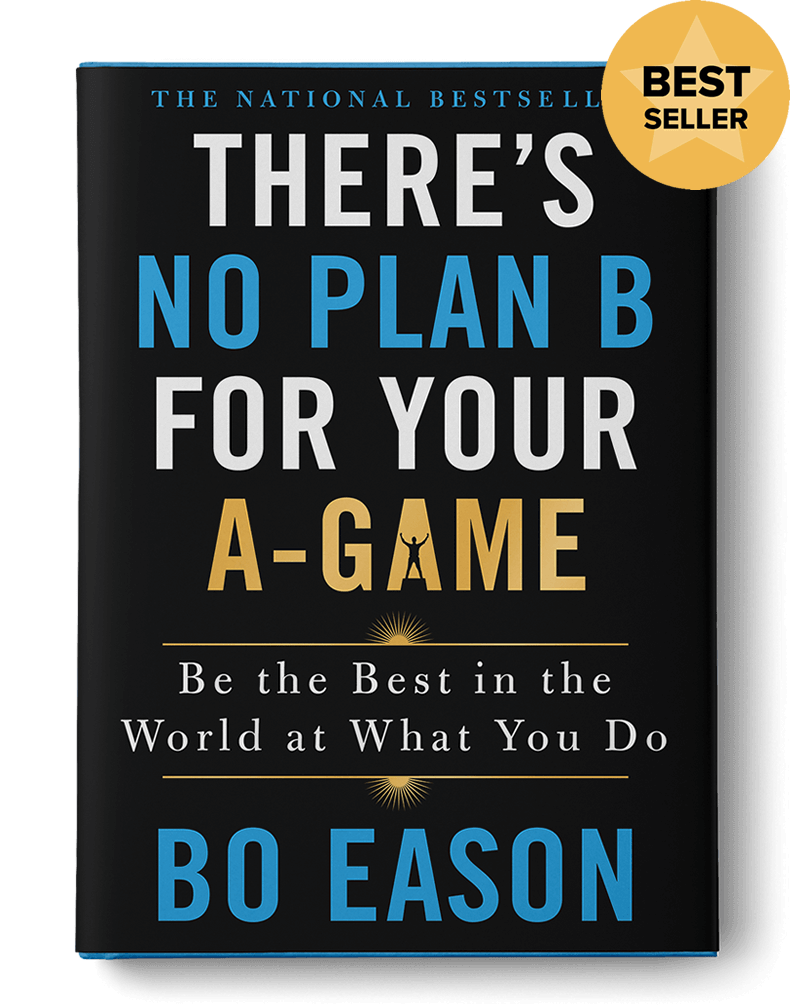Bo: Hey, it’s Bo and I have a very special guest with me today, and a good friend too, Dr. Joan Rosenberg. Thank you for being here. It’s amazing to have you. Every time I do an event, Joan comes to them because what I’m asking of you, in fact what I demand of you, is all that you’ve got and that takes a certain resolve. And to be resolved, you have to be healthy. Because so much of our work has to do with storytelling, I have Joan come to all of our storytelling events because there’s this fine line, and I know a lot of you have asked this question of me, there’s this fine line of what is storytelling and then what is dumping or what is therapy. And I’ll just tell you straight up storytelling is not dumping. Storytelling is therapeutic, but it’s not therapy. Correct, Joan?
Joan: Absolutely, true. Absolutely, true.
Bo: Let’s kind of start right there. This is usually where you and I meet. Right here on this whole storytelling thing. A lot of people, as you know with a lot of the exercises that we do, go to their lowest moment in storytelling instead of their highest or greatest moment because that’s usually a better story.
Joan: Absolutely.
Bo: Right? When you start at the lowest …
Joan: It’s our struggle. That’s how we grew and evolved.
Bo: It’s our story of struggle that connects us to other human beings. But most of us want to hide that part, right? And not tell it. We’d rather tell, “I’m on the top of Mount Everest. Look at me! I’ve got a fancy car and a pretty wife.” Or whatever it is, instead of, “I had nothing and I started grinding away.” Let’s talk about that from the perspective of if somebody does start at their lowest moment, the question I always get is, “Well, Bo, if I start there, how is my audience going to receive that? How am I going to get through that? Isn’t it going to be too heavy for them?” What would you say to somebody who said, “Joan, look, I’ve got this heavy story,” which most of us do; like a dark moment where our life was kind of defined. If they come to you and go, “Joan, I’ve got this heavy story and here’s where it is, I don’t think I can tell this to a business audience or to my audience,” what would you say to them?
Joan: There are several things. First thing is you might not be telling it to every audience. So some things you may choose to leave out, some things you’ll choose to put in. The key here is you want to be telling the audience your story when you’re no longer a victim of that story.
Bo: That’s great. One rule we have, right? No victims in storytelling. Right?
Joan: Right. Because if I go to tell the story to an audience, and I haven’t worked out all my emotional stuff—my thoughts, my feelings, my beliefs, however it is I perceive myself from the experience that I went through—if I haven’t worked that out then I’m asking my audience to carry all of the emotion from that.
Bo: Yeah. Got it. So now they’re responsible for the story that you’re the one telling.
Joan: Exactly.
Bo: Which you can’t do to an audience because they can’t hear it, for one. They can’t hear. They can’t carry that weight for you. You’ve got to make it accessible to them.
Joan: Exactly. And we only make that accessible when we’ve made sense of it. When we’ve taken the time to kind of process through it, work through it, cry about it, whatever it takes. Have conversations with other people about it. But that we take the time to really make sense of how the experience impacted us and the meaning it has for us. Then we can go in to the audience and share either all of the story and tell it from a place of strength so we’re not being victimized by it or, again, we can make the choice to tell portions of it, or just know that once we’ve worked through it, it now gives us greater range of expression.
Bo: That’s right. And for you guys, just so you know, I rarely talk about this stuff. I don’t mean not to talk about it, but in actuality, when you’ve done this kind of work, therapeutic work, psychological work, you kind of forget that you went through it.
Joan: Right.
Bo: I’m a big believer in your life story because I know that my life story pretty much gave me a voice, gave me an occupation, gave me access to myself so that I could then contribute, instead of being victimized by my own life. Right? And I think that’s true of all of us. To do that, I had to work with somebody like you. You know what I mean? To get healthy enough so I could tell the story.
Joan: Right. If I may, I always encourage Bo to tell the story of when Larry Moss looked at him and said, “Bo, if your knees could talk, what would they say?”
Bo: Yeah.
Joan: What you describe is you literally fell to those knees and then it took months of actually processing through the pain you had pushed aside. A lot of people come to see you on stage and they go, “Well, I want to be like that. How can I be like that?” What people don’t see is all the work you put in to get there, and it’s all this emotional work that actually has given you that range of expression.
Bo: Yeah, that’s really well said and I’m telling you, like Joan just used the word “work.” It’s a lot of work that I did on myself but that is the greatest work one can do. You know? When you start to develop your own voice and your own story and you start to find your way and where your strengths and weaknesses are, boy, you’re pretty much unstoppable because you can’t get knocked off who you are anymore.
Joan: That’s right. It’s really interesting. A lot of people think that you’re just here composed and your stories are contained well inside and then you tell stuff. It’s like you know who you are and then you speak. What I have found, and this is exactly what you just said, is once you start speaking then you know who you are.
Bo: Ah, yeah, that’s very true.
Joan: That’s part of finding your voice. You actually have to give voice to find your voice.
Bo: Wow, yeah. That’s really cool. Let’s talk about this for a second. You and I often have this conversation. Storytelling for me, telling my own story, has given me optimum health.
Joan: Right.
Bo: Like I’m able to run full speed once I have the ability to put a narrative to my life.
Joan: Right.
Bo: And I wasn’t aiming for that. I wasn’t aiming for health. I wanted to tell a story because I wanted to have a job. You know? Health kind of came through the back door—I wasn’t really asking for it.
Joan: That’s right.
Bo: But what a little side prize it was because to be able to run full speed, especially when you’re on stage and dealing with a lot elements, like your audience, or in this case today with cameras, and you’re dealing with nerves and pressure, to be healthy and to be able to be resolute about it is just invaluable work. And so, I just remember getting in rehearsals with Larry Moss and trying to tell my story. I wanted to tell the story night after night after night after night in New York City, you know? Big lights. And he told me, “You’re not going to be able to do that unless you get resolved about this story and get resolved about the man that you are and your own voice. And until you do, you won’t be able to do it night after night after night without basically puking on the audience.
Joan: Right.
Bo: I just remember going in to do that kind of work and coming out the other side and going, “Wow. I can actually do this. I actually know what my voice is.”

